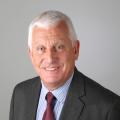
STORY has it when Gustav Holst cycled to Bournemouth to proudly show Bournemouth Municipal Orchestra founder and conductor Dan Godfrey his score of The Planets, he was mistaken for the delivery boy.
As an advocate of British music, Godfrey often featured Holst’s works and frequently got him to listen to and indeed conduct the orchestra.
The two also collaborated on works.
Given that special relationship it seemed more than appropriate The Planets should be the centrepiece of the sell out launch of the new season at Lighthouse Poole.
And indeed that it should be so rapturously received by a very exuberant audience.
Under the baton of great BSO friend, the imposing and charismatic Karl-Heinz Steffens (principal conductor of the Norrkoping Symphony Orchestra) the programme began in reflective, gentle and precise fashion with Vaughan Williams’ In the Fen Country.
With his Third Symphony, Beethoven was at his most innovative and Eroica, one of his celebrated works. straddles the Romantic and Classical eras.
Maestro and players were joined by internationally renowned pianist Paul Lewis, peerless in his Beethoven repertoire, whose stunning performance left the audience marvelling at his genius and appreciative they seen such a huge talent. There was a warm embrace between conductor and soloist.
Cheltenham born Holst was fascinated by many things including space.
His mesmerising and hugely influential seven movement Planets Suite was written during the First World War between 1914-16, with each piece conveying the personality of the planet.
He described it as a series of mood pictures, each acting as foils to one another.
Mars the Bringer of War nearly took off the Lighthouse roof as it launched the second half, deep, dramatic, powerful, and resonant of battle.
This piece epitomised the jaw dropping magnificence of a full symphony orchestra in full flight.
John Williams used the melodies and instrumentation of Mars as the inspiration for "The Imperial March" and "Imperial Attack" themes in his soundtrack for the Star Wars films.
The Planets sounds as though it was the inspiration for pretty much every piece of space movie music ever recorded. It was probably has been.
A few years after the ‘war to end all wars’ Holst adapted Jupiter to compose I Vow to Thee My Country, a central part of Remembrance Day services ever since.
On the final mystical note of Neptune, the BSO faithful, never known for holding back, excelled themselves with cheering and whooping and hollering especially as maestro Steffens returned to the stage and each section of the orchestra stood to take a well deserve bow for a magnificent and triumphant contribution.
It was clearly good to be back.
This orchestra is an unstoppable musical force and this was the perfect start to the new eight month season of world class music making.
New chief conductor Mark Wigglesworth makes his debut in that role next month marking the first change in the musical top team in 15 years.
BSO chief executive, Dougie Scarfe, addressed the audience at the start expressing his gratitude for their support in its mission.
“We are really proud to be your orchestra here and across the southwest,” he said.
It's clearly a sentiment that works both ways.



Comments: Our rules
We want our comments to be a lively and valuable part of our community - a place where readers can debate and engage with the most important local issues. The ability to comment on our stories is a privilege, not a right, however, and that privilege may be withdrawn if it is abused or misused.
Please report any comments that break our rules.
Read the rules hereLast Updated:
Report this comment Cancel